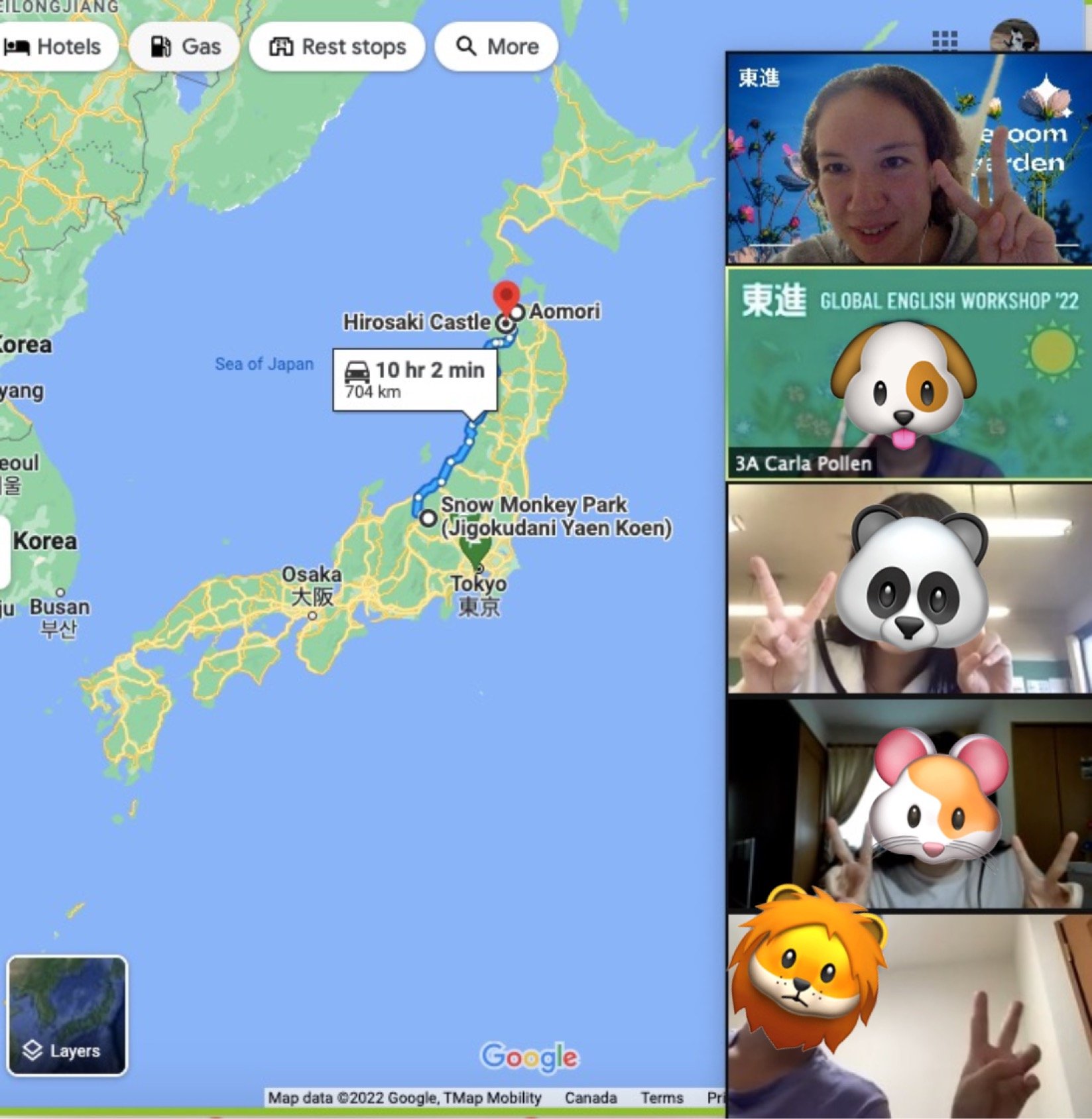Building Self-Confidence with Global English Workshop
By LISA Stephens
When I was younger, I was known to be the shyest in my classes, never raising my hand voluntarily. My thought process was "whatever I had to say is not that useful anyway", and "what if I say something embarrassing?" I admit that it was negative, but now it is changing for the better.
In the Fall of 2020, I applied to be an intern at the Global English Workshop. The program focuses on improving the speaking ability for Japanese students by having conversations about global issues and future goals. In doing so, the hope is to increase their confidence and speak more fluently in English. When I was applying I thought that it would be perfect for me since I am half Japanese and can understand the Japanese point of view to help them! But it turned out to help me increase my own confidence, as well as helping the Japanese students.
The first day of teaching I was nervous and having thoughts like "what if they do not like my teaching style?" and "are these activities taking up too much or too little time?" After all, we spend up to 8 hours a day with the students. I had so many worries and was sweating so much (but thankfully no one knew since the workshop was online). By the end of the day, the students were genuinely grateful to meet and talk to a university student that was a few years older than them. I was so relieved… and then exhilarated to start a new day with them.
Toward the end of the summer, I felt confident in knowing what I was doing. I got myself into a routine and knew what worked, what did not work, and learned from my own peers. It was even more validating when the students wrote about having a great time and feeling like they improved their English.
Now that I write about it, it feels like an obvious mechanism; teaching others about being confident can make you more confident. Just like teaching your friend how to do a math problem can make you understand it better. In the end, you can feel the experience much more when you have it first hand.
Through my time teaching kids at the English workshop, I found some ways to improve student’s confidence:
Play activities that we will all DEFINITELY mess up. In our group, we would take turns trying to do tongue twisters. Students see that even coaches mess up and laugh at themselves, and that it’s not a big deal that we trip over our own words in our native language.
Allow the students to talk about their favourite activities, movies, and music, then ask follow up questions. The students really start to open up when they talk about topics that they really like. One of my students shared that they really love Vocaloid music. I was not sure what it was, so I played some of it for everyone to hear. It sounded super interesting and different from any western music I’ve heard. A couple of other students shared their favourite Vocaloid artists and it became a recurring theme throughout the rest of the workshop. They would brighten up and talk about it more when the topic of music came up.
Remind them that they’re doing a great job and messing up is part of the process. In Japan, language learning tends to focus more on reading/writing. This results in students being able to understand a lot and writing complex topics, but it’s harder to have on-the-spot conversations. This workshop is their opportunity to practise speaking in a judgement free zone, so it’s great to give a reminder that they’re doing great.
After my second year in the Global English Workshop, I know I am not the same person as before. For example, I find myself speaking more confidently in a group. I find myself leading others when they need help in group projects. I apply to jobs and opportunities that I wasn’t confident in applying to before. The doors are open for me to tackle whatever life has to offer.
Now if I do something embarrassing, who cares? I'll have more regrets not doing something than actually doing it.
Thank you for reading and I hope I offered some insight about how fulfilling teaching is.
- Lisa




